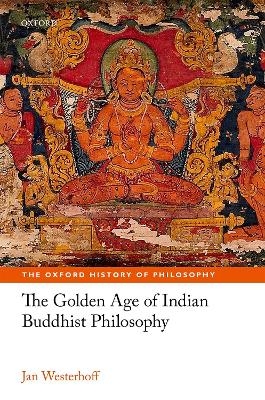
The Golden Age of Indian Buddhist Philosophy
Oxford University Press (Verlag)
978-0-19-873266-2 (ISBN)
Jan Westerhoff unfolds the story of one of the richest episodes in the history of Indian thought, the development of Buddhist philosophy in the first millennium CE. He starts from the composition of the Abhidharma works before the beginning of the common era and continues up to the time of Dharmakirti in the sixth century. This period was characterized by the development of a variety of philosophical schools and approaches that have shaped Buddhist thought up to the present day: the scholasticism of the Abhidharma, the Madhyamaka's theory of emptiness, Yogacara idealism, and the logical and epistemological works of Dinnaga and Dharmakirti. The book attempts to describe the historical development of these schools in their intellectual and cultural context, with particular emphasis on three factors that shaped the development of Buddhist philosophical thought: the need to spell out the contents of canonical texts, the discourses of the historical Buddha and the Mahayana sutras; the desire to defend their positions by sophisticated arguments against criticisms from fellow Buddhists and from non-Buddhist thinkers of classical Indian philosophy; and the need to account for insights gained through the application of specific meditative techniques. While the main focus is the period up to the sixth century CE, Westerhoff also discusses some important thinkers who influenced Buddhist thought between this time and the decline of Buddhist scholastic philosophy in India at the beginning of the thirteenth century. His aim is that the historical presentation will also allow the reader to get a better systematic grasp of key Buddhist concepts such as non-self, suffering, reincarnation, karma, and nirvana.
Jan Westerhoff was educated at Cambridge and the School of Oriental and African Studies. He has taught Philosophy at the Universities of Oxford and Durham and is presently Professor of Buddhist Philosophy at the University of Oxford, Fellow and Tutor in Theology and Religion at Lady Margaret Hall, University of Oxford, and a Research Associate at the School of Oriental and African Studies, University of London. His books include Ontological Categories (2005), Nagarjuna's Madhyamaka (2009), Twelve Examples of Illusion (2010), The Dispeller of Disputes: Nagarjuna's Vigrahavyavartani (2010), and A Very Short Introduction to Reality (2011), all published by Oxford University Press.
Introduction
1 Abhidharma
2 Madhyamaka
3 Yogacara
4 The School of Dinnaga and Dharmakirti
| Erscheinungsdatum | 13.06.2018 |
|---|---|
| Reihe/Serie | The Oxford History of Philosophy |
| Verlagsort | Oxford |
| Sprache | englisch |
| Maße | 163 x 242 mm |
| Gewicht | 682 g |
| Themenwelt | Geschichte ► Allgemeine Geschichte ► Mittelalter |
| Geisteswissenschaften ► Philosophie ► Östliche Philosophie | |
| Geisteswissenschaften ► Religion / Theologie ► Buddhismus | |
| ISBN-10 | 0-19-873266-X / 019873266X |
| ISBN-13 | 978-0-19-873266-2 / 9780198732662 |
| Zustand | Neuware |
| Informationen gemäß Produktsicherheitsverordnung (GPSR) | |
| Haben Sie eine Frage zum Produkt? |
aus dem Bereich


